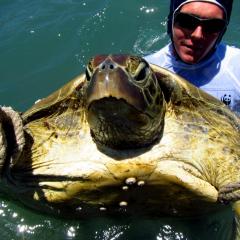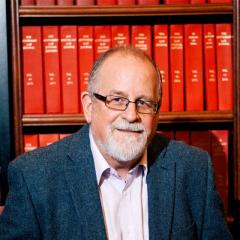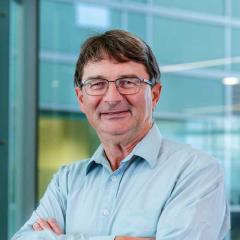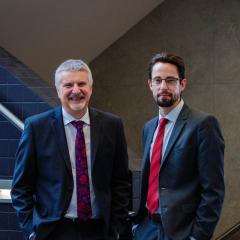The Queensland Alliance for Environmental Health Sciences (QAEHS) brings together experts who dedicate their careers to quantifying and combatting potential threats to the environment and human health.
From screening drinking water for chemicals that might threaten water security to investigating the impact human-made chemicals have on coastal airport environments, QAEHS researchers are tackling environmental health issues to create a healthier nation.
Launched in April 2017, the centre has made headlines with several projects of public interest including the chemicals found in the Great Barrier Reef turtles and producing three of the nine National Wastewater Drug Monitoring Program reports, released by the Australian Criminal Intelligence Commission.
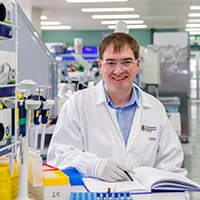
QAEHS Centre director Professor Kevin Thomas said to address the complex environmental health challenges facing society it is necessary researchers and policymakers work together to develop partnerships and collaborations across different sectors.
“In recent years our understanding of the effects chemicals can have on humans and wildlife has rapidly evolved. In everyday life we are exposed to thousands of chemicals, whether it be in the natural or built environment. At QAEHS we recognise the only way to tackle this complexity is through collaborative interdisciplinary research using innovative techniques.”
QAEHS researchers span across several areas at UQ including the Faculty of Health and Behavioural Sciences, the Advanced Water Management Centre, the School of Public Health, the Institute for Social Science Research (ISSR) and the School of Communication and Arts.
Professor Thomas said it is this vast knowledge and expertise that allow the centre to focus on key environmental health areas requiring attention.
“We are currently working on a number of exciting projects including increasing our understanding of environmental pollutants in water resources and analysing health risk exposures, and the threat to water security. Innovative methods developed by QAEHS researchers were used during the G20 summit of world leaders in Brisbane in 2014, to ensure the safety of local drinking water, ongoing monitoring of South East Queensland water catchments and also in preparation towards the Commonwealth Games in 2018.
“We are working with the Department of the Environment and Energy and the Australian Government on air pollution to analyse trends among forty-four representative sites with different land-use in Australia. The project will contribute to Australia fulfilling its international obligations under the Stockholm Convention on persistent organic pollutants.”
Other projects the team are working on include the work early career researcher Dr Xianyu Wang is doing on assessing early-life human exposure to selected pesticides using urinary biomarkers, and research from Professor Peter Sly on the impact of environmentally persistent free radicals on the respiratory health of children, just to name a few.
Each of the projects QAEHS focuses on are aligned under seven themes led by an expert in their field from UQ.
Professor Thomas manages the environmental toxicology stream as well as research across four of the streams, mainly in collaboration with Professor Jochen Mueller.
“One project we are really excited about is the research we are doing with wastewater to reveal valuable information about the health of the community. So far we have focused on determining the level of drug use but some of our work on oxidative stress shows that there is also potential to develop a range of innovative techniques as a solution to quantitatively assess patterns of other factors within populations, such as chemical exposure, nutrition and disease.”
Professor Thomas moved to Australia from Norway in January to begin his role as QAEHS director with over 150 papers and book chapters under his belt. He is also Associate Editor for the journal Science of the Total Environment.
“Coming from where it is freezing cold most of the time I laugh when friends and colleagues here in Australia comment on the weather during the cooler months. I certainly haven’t missed shovelling snow nearly every day during winter and the short dark days, however there are a few things I miss. I miss the autumn colours, the changing of the seasons and going away with my wife Katherine and dog, Wurzel, to stay in our mountain log cabin.
“At this stage, I am very happy to call Australia home as I am thoroughly enjoying my role to lead QAEHS to become a recognised expert centre and first point of call for environmental health science in Australia. We have a lot of excellent research starting and I hope to see this develop to a level where a number of our existing flagship programs are directly influencing environmental health policy in Australia and further afield.
“We are very lucky to have the wealth of expert knowledge and experience among the QAEHS research groups, so I have no doubt the team will continue to produce research that meets the needs of Australia and the wider community globally.”
QAEHS is jointly funded by Queensland Health and UQ.
Words: Kirsten O'Leary
Photos: Anjanette Webb

